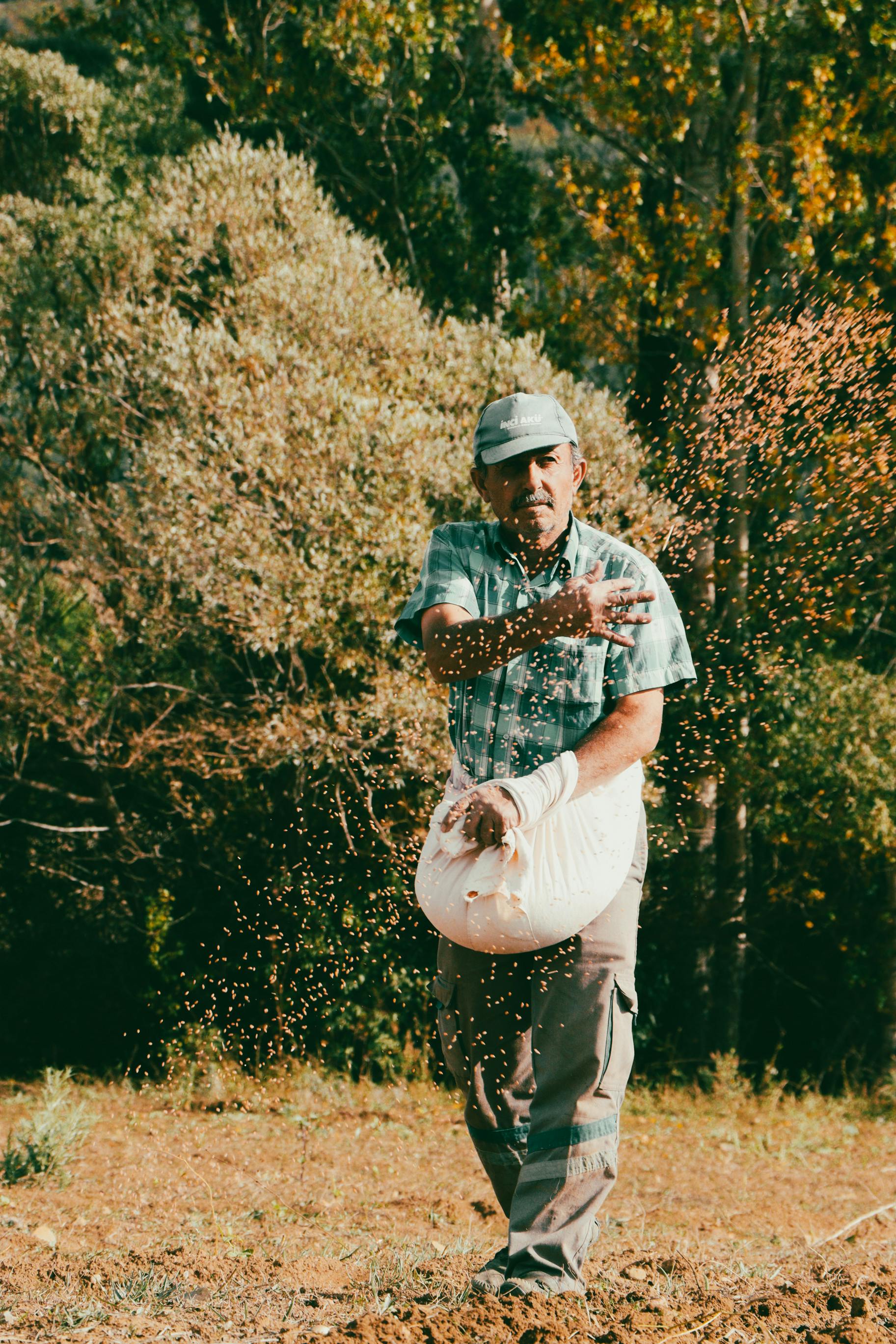I really struggle with the law of inertia. You know, that rule of physics that states that an object in motion tends to stay in motion and an object at rest tends to stay at rest. Yup, that’s me. If I am working on a project at my house I just want to keep going and going and don’t want to stop. Yet, if I’m sitting at my desk at work, I really don’t want to get up. Just let me stay there and do my job and don’t ask me to do anything else.
But the last few words of that law state, “unless acted upon by force.” Whether it be exhaustion from working all day causing me to sit down, or my boss asking me to get up and complete a task, some force motivates change.
In our First Reading God sent his word through Jeremiah to enact change in the people of Judah: “Thus says the LORD: If you disobey me, not living according to the law I placed before you and not listening to the words of my servants the prophets, whom I send you constantly though you do not obey them, I will treat this house like Shiloh, and make this the city to which all the nations of the earth shall refer when cursing another.” Yet apparently they struggled with inertia even more than I do because instead of moving toward repentance they declared to Jeremiah, “You must be put to death!”
Our Gospel reading shows us an example of the exact opposite. The raising of Lazarus was one of the most amazing inertia-reversing moments in history. Through the force of our almighty God, a man was raised from the dead!
Not many of us will face either of these two realities in our lifetime, yet we are consistently called upon to make changes to become more Christ-like. To change our attitudes, to change our words, to change our decision-making, to change our actions. Due to original sin, “inertia” makes it hard to focus our minds and hearts on God, but He is the “force” that can enact change in us.
May we remember to call upon our amazing God every day, that He may grant us the grace to make changes in our lives for the better. Then perhaps that old law of physics won’t burden us so much anymore.
Batallo bastante con la ley de la inercia. Ya sabes, esa regla de la física que establece que un objeto en movimiento tiende a permanecer en movimiento y un objeto en reposo tiende a permanecer en reposo. Así soy yo. Si estoy trabajando en un proyecto en mi casa, solo quiero seguir y seguir y no quiero parar. Sin embargo, si estoy sentada en mi escritorio en el trabajo, realmente no quiero levantarme. Solo déjame quedarme allí a hacer mi trabajo y no me pidas que haga nada más.
Pero las últimas palabras de esa ley establecen, “a menos que se actúe por la fuerza”. Ya sea que el cansancio de trabajar todo el día me obligue a sentarme o que mi jefe me pida que me levante y complete una tarea, alguna fuerza motiva el cambio.
En la Primera Lectura, Dios envió su palabra a través de Jeremías para promulgar un cambio en el pueblo de Judá: “Esto dice el Señor: Si no me obedecen, ni cumplen la ley que he dado, ni escuchan las palabras de mis siervos, los profetas, que sin cesar les he enviado y a quienes ustedes no han escuchado, entonces yo trataré a este templo como al de Siló y haré que esta ciudad sirva de escarmiento para todos los pueblos de la tierra’”. Sin embargo, aparentemente batallaron con la inercia incluso más que yo porque en lugar de moverse hacia el arrepentimiento le declararon a Jeremías: “Este hombre debe morir”.
Nuestra lectura del Evangelio nos muestra un ejemplo de exactamente lo contrario. La resurrección de Lázaro fue uno de los mejores momentos de voltear a la inercia de toda la historia. ¡Por la fuerza de nuestro Dios todopoderoso, un hombre resucitó de entre los muertos!
Muchos de nosotros nunca vamos a enfrentar ninguna de estas dos realidades en la vida, sin embargo, constantemente estamos llamados a hacer cambios para asemejarnos más a Cristo. Cambiar nuestras actitudes, cambiar nuestras palabras, cambiar nuestra toma de decisiones, cambiar nuestras acciones. Debido al pecado original, la “inercia” hace que sea difícil enfocar nuestras mentes y corazones en Dios, pero Él es la “fuerza” que puede realizar el cambio en nosotros.
Acordémonos a invocar a nuestro Dios maravilloso todos los días, para que Él nos conceda la gracia de hacer cambios para mejor en nuestras vidas, para que esa antigua ley de la física ya no nos cueste tanto.
 Tami Urcia is a midwestern gal from a large Catholic family. As a young adulthood she was a missionary in Mexico, where she studied theology and philosophy. After returning stateside bilingual, she gained a variety of work experience, traveled extensively and finished her Bachelor’s Degree at Brescia University. She loves organizing and simplifying things, watching her children play sports, deep conversations with close family and friends and finding unique ways to brighten others’ day with Christ’s love. She works full time at Diocesan in the Software Department and manages the Inspiration Daily reflections. She is also a contributing writer on CatholicMom.com and BlessedIsShe.net.
Tami Urcia is a midwestern gal from a large Catholic family. As a young adulthood she was a missionary in Mexico, where she studied theology and philosophy. After returning stateside bilingual, she gained a variety of work experience, traveled extensively and finished her Bachelor’s Degree at Brescia University. She loves organizing and simplifying things, watching her children play sports, deep conversations with close family and friends and finding unique ways to brighten others’ day with Christ’s love. She works full time at Diocesan in the Software Department and manages the Inspiration Daily reflections. She is also a contributing writer on CatholicMom.com and BlessedIsShe.net.
Feature Image Credit: Simon Berger, unsplash.com/photos/white-and-gray-thick-pile-textile-Jp5Lv17Mq4M
The views and opinions expressed in the Inspiration Daily blog are solely those of the original authors and contributors. These views and opinions do not necessarily represent those of Diocesan, the Diocesan staff, or other contributors to this blog.






 Merridith Frediani loves words and is delighted by good sentences. She also loves Lake Michigan, dahlias, the first sip of hot coffee in the morning, millennials, and playing Sheepshead with her husband and three kids. She writes for Catholic Mom, Diocesan.com, and her local Catholic Herald. Her first book Draw Close to Jesus: A Woman’s Guide to Adoration is available at Our Sunday Visitor and Amazon. You can learn more at
Merridith Frediani loves words and is delighted by good sentences. She also loves Lake Michigan, dahlias, the first sip of hot coffee in the morning, millennials, and playing Sheepshead with her husband and three kids. She writes for Catholic Mom, Diocesan.com, and her local Catholic Herald. Her first book Draw Close to Jesus: A Woman’s Guide to Adoration is available at Our Sunday Visitor and Amazon. You can learn more at 
 Hailing from Nashville, Catherine is a graduate of Christendom College with a lifelong passion for words. Her love of writing and her Catholic Faith continue to shape her as a freelance editor, copywriter, and (aspiring) novelist, where she pursues her passions for the love and greater glory of God.
Hailing from Nashville, Catherine is a graduate of Christendom College with a lifelong passion for words. Her love of writing and her Catholic Faith continue to shape her as a freelance editor, copywriter, and (aspiring) novelist, where she pursues her passions for the love and greater glory of God.
 Pamela Kavanaugh is a grateful wife, mother, and grandmother who has dedicated her professional life to Catholic education. Though she has done her very best to teach her students well in the subjects of language and religion, she knows that she has learned more than she has taught. She lives, teaches, and writes in southwest suburban Chicago.
Pamela Kavanaugh is a grateful wife, mother, and grandmother who has dedicated her professional life to Catholic education. Though she has done her very best to teach her students well in the subjects of language and religion, she knows that she has learned more than she has taught. She lives, teaches, and writes in southwest suburban Chicago.
 Kathryn Mulderink, MA, is married to Robert, Station Manager for Holy Family Radio. Together they have seven children (including Father Rob), and eleven grandchildren. She is President of the local community of Secular Discalced Carmelites and has published five books and many articles. Over the last 30 years, she has worked as a teacher, headmistress, catechist, Pastoral Associate, and DRE, and as a writer and voice talent for Catholic Radio. Currently, she serves the Church by writing and speaking, and by collaborating with various parishes and to lead others to encounter Christ and engage their faith. Her website is
Kathryn Mulderink, MA, is married to Robert, Station Manager for Holy Family Radio. Together they have seven children (including Father Rob), and eleven grandchildren. She is President of the local community of Secular Discalced Carmelites and has published five books and many articles. Over the last 30 years, she has worked as a teacher, headmistress, catechist, Pastoral Associate, and DRE, and as a writer and voice talent for Catholic Radio. Currently, she serves the Church by writing and speaking, and by collaborating with various parishes and to lead others to encounter Christ and engage their faith. Her website is 


 Kate Taliaferro is an Air Force wife and mother. She is blessed to be able to homeschool, bake bread and fold endless piles of laundry. When not planning a school day, writing a blog post or cooking pasta, Kate can be found curled up with a book or working with some kind of fiber craft. Kate blogs at
Kate Taliaferro is an Air Force wife and mother. She is blessed to be able to homeschool, bake bread and fold endless piles of laundry. When not planning a school day, writing a blog post or cooking pasta, Kate can be found curled up with a book or working with some kind of fiber craft. Kate blogs at 
 Mike Karpus is a regular guy. He grew up in Michigan’s Upper Peninsula, graduated from Michigan State University and works as an editor. He is married to a Catholic school principal, raised two daughters who became Catholic school teachers at points in their careers, and now relishes his two grandchildren, including the older one who is fascinated with learning about his faith. He also has served on a Catholic school board, a pastoral council and a parish stewardship committee. He currently is a lector at Mass, a Knight of Columbus, Adult Faith Formation Committee member and a board member of the local Habitat for Humanity organization. But mostly he’s a regular guy.
Mike Karpus is a regular guy. He grew up in Michigan’s Upper Peninsula, graduated from Michigan State University and works as an editor. He is married to a Catholic school principal, raised two daughters who became Catholic school teachers at points in their careers, and now relishes his two grandchildren, including the older one who is fascinated with learning about his faith. He also has served on a Catholic school board, a pastoral council and a parish stewardship committee. He currently is a lector at Mass, a Knight of Columbus, Adult Faith Formation Committee member and a board member of the local Habitat for Humanity organization. But mostly he’s a regular guy.
 Deanna G. Bartalini, M.Ed.; M.P.A., is a certified spiritual director, writer, speaker and content creator. The
Deanna G. Bartalini, M.Ed.; M.P.A., is a certified spiritual director, writer, speaker and content creator. The 